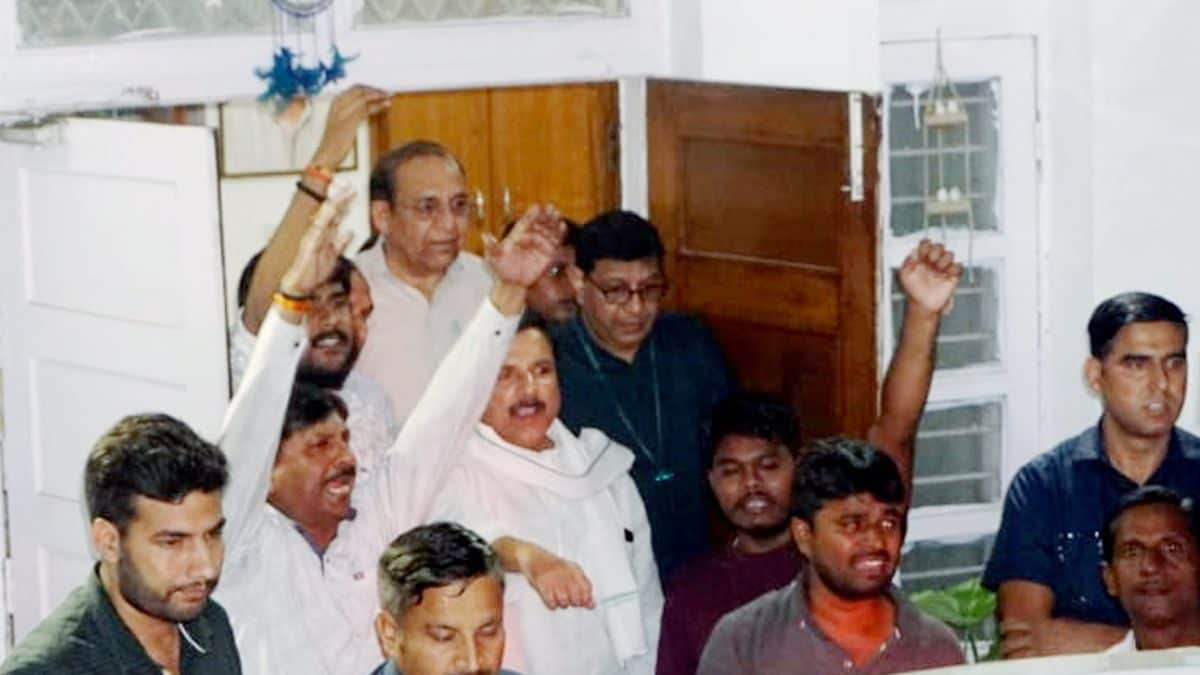In the most recent rush of political events in India, conflicts have increased in Delhi and Rajasthan. Here is a deeper look at the major developments taking place in these areas.
Delhi’s Political Turmoil: AAP Workers Clash with Delhi Police
Workers for the Aam Aadmi Party (AAP) were involved in a violent altercation with the Delhi police amid a demonstration that broke out after Sanjay Singh, an AAP member of parliament, was detained. The Enforcement Directorate (ED) made the arrest after charging Singh with taking part in the fraud involving the Delhi Excise Policy. The episode brought to light the growing political unrest in Delhi, where the AAP has emerged as a significant force under the leadership of Arvind Kejriwal, Delhi CM, in recent years.
The continuing power struggle between the Bharatiya Janata Party (BJP) and the AAP enters a new chapter with Sanjay Singh’s detention. The BJP has been charged by the AAP for utilizing government organizations to attack its leaders and sabotage its political operations. These accusations are strengthened by this arrest because it concerns a prominent AAP leader who is under investigation by a national organization.
Prime Minister Modi’s Rajasthan Visit: A Focus on Development Projects
Prime Minister Narendra Modi traveled to Rajasthan, which has frequently served as a major theater of conflict in Indian politics, on the same day that the AAP engaged in altercations with the Delhi police. Political parties were vying for popular support during the visit since state elections were about to take place.
Throughout the visit, Prime Minister Modi unveiled a number of massive projects targeted at advancing Rajasthan’s infrastructure and development. The road, rail, aviation, health, and higher education sectors were all included in these initiatives. The laying of the cornerstone for a memorial to the legendary historical heroine Rani Durgavati was among the most significant events of his visit.
The precise timing of these projects’ groundbreakings and dedication ceremonies prompted concerns about the confluence of politics and government. While the BJP asserted that these initiatives were crucial for the state’s advancement, others claimed that such activities during election season may be seen as attempts to influence electorates to support the party.
AAP’s Protest Against Sanjay Singh’s Arrest
Sanjay Singh was arrested by the ED, and the AAP in Delhi reacted immediately. The group made preparations for a demonstration in front of the BJP’s national office. This action was a blatant demonstration of their displeasure with what they regarded as political vengeance on the part of the BJP. In a media conference, AAP leaders, including Delhi Minister Gopal Rai, expressed their worries, stressing that they thought the BJP was abusing its authority to sway elections and impose a type of authoritarianism.
The AAP’s protest brought attention to the more important problem of political division and the usage of centralized institutions in India’s political system. These occurrences cast doubt on the agency’s independence and impartiality when it comes to investigations involving significant political personalities.
In conclusion, the current political climate in India is highlighted by the recent events in Delhi and Rajasthan. This climate is marked by conflicts between competing political groups, accusations of power abuse, and an ongoing fight for popular support. As these situations develop, they highlight the difficulties and complications of Indian politics as a whole, where the distinctions between electioneering and government are sometimes hazy.
